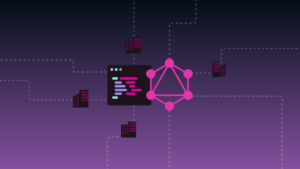
The rapid expansion of smart home systems—encompassing IoT-enabled lighting, climate control, security cameras, and voice-activated assistants—has created a surge in demand for technicians who can install, integrate, and maintain these advanced solutions. To keep pace with this evolving landscape, electricians must acquire specialised skills in both hardware installation and software configuration.
A recent report from Markets and Markets forecasts that the global smart home market will grow from USD 89.8 billion in 2025 to USD 116.4 billion by 2029, at a compound annual growth rate of 6.6% (Markets and Markets, May 10, 2025). Similarly, the Custom Electronic Design & Installation Association (CEDIA) has expanded its own training programmes, certifying hundreds of professionals each year in smart-home integration best practices (CEDIA Smart Home Training, May 2025).
Why Smart Home Training Matters
- Complex System Integration
Smart homes rely on interoperable ecosystems—Zigbee, Z-Wave, Wi-Fi, and proprietary protocols—requiring electricians to understand network topologies, device pairing, and firmware updates. - User Experience and Reliability
Beyond wiring and mounting hardware, success hinges on intuitive system configuration: creating user-friendly control panels, setting up automation routines, and troubleshooting connectivity issues. - Cybersecurity Considerations
As homes become more connected, electricians must also implement network security measures—such as secure password practices, guest-network segmentation, and encrypted communication—to safeguard against hacking and data breaches. - Regulatory Compliance
Installations must adhere not only to BS 7671 wiring regulations but also to emerging standards for low-voltage data cabling and electromagnetic compatibility.
Building Smart Home Expertise with Elec Training
To equip electricians for these challenges, Elec Training offers targeted modules within its broader electrician course framework. Key components include:
- IoT Fundamentals: Understanding the architecture of smart sensors, hubs, and edge devices.
- Network Configuration: Hands-on labs setting up home networks, Wi-Fi mesh systems, and device onboarding.
- Automation Programming: Creating sequences and scenes using popular platforms (e.g., Home Assistant, Control4).
- Diagnostics and Maintenance: Tools and techniques for monitoring system health, updating firmware, and resolving interoperability glitches.
For those aiming to formalise their credentials, Elec Training’s nvq level 3 electrical programme now includes units on low-voltage data installation and smart-home test procedures—ensuring that you not only meet industry-standard competencies but also stand out to forward-thinking employers and clients.
Career Opportunities and Growth
Electricians with smart-home expertise can command premium rates and pursue roles such as:
- Home Automation Specialist: Designing and installing end-to-end solutions for new builds and retrofits.
- Systems Integrator: Coordinating between AV, security, lighting, and HVAC sub-contractors to deliver cohesive smart environments.
- Technical Consultant: Advising property developers and landlords on system selection, network security, and scalability.
With the smart home market poised for continued expansion, professionals who invest in specialised training today will be best positioned to capitalize on emerging opportunities.
Next Steps
Whether you’re new to the trade or seeking to upskill, Elec Training’s combined practical workshops, theory sessions, and assessment pathways offer a clear route to mastery. Enrol in our comprehensive electrician course to build foundational expertise, then progress to the enhanced nvq level 3 electrical qualification—complete with smart-home focused units.
By bridging traditional electrical skills with cutting-edge smart-technology training, you’ll be equipped to deliver the seamless, secure home automation experiences that modern consumers demand.








